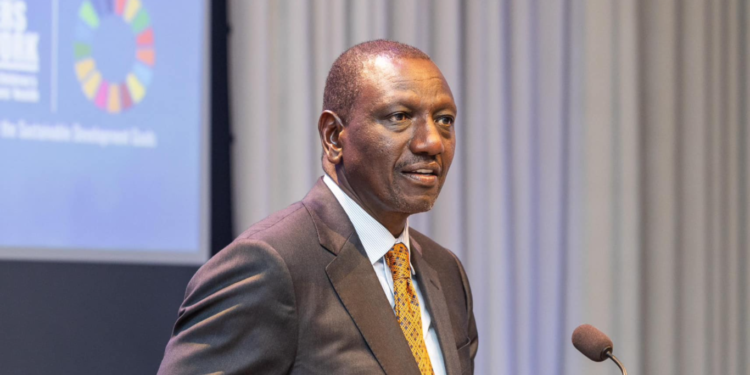President William Ruto has defended his government’s handling of the country’s economic crisis, including the controversial tax hikes that sparked widespread protests earlier this year.
In a candid interview with CNN’s Christiane Amanpour, Ruto acknowledged the challenges posed by Kenya’s heavy debt burden but assured that the country was stabilizing, with inflation down and the exchange rate improving. He pledged to find a balance between addressing the debt and easing pressure on citizens who have been struggling with the rising cost of living.
Facing significant economic headwinds and political unrest, President Ruto stood by his administration’s decision to raise taxes in the midst of Kenya’s financial crisis. He described the country’s economic situation as fragile but improving, with key indicators like inflation showing signs of recovery. Inflation, he said, had dropped from 9% to 4.3%, while the exchange rate had stabilized, giving the government room to maneuver without further burdening ordinary Kenyans.
“We have serious debt issues, we have a world that has serious climate conditions… and we are trying to manage and mobilize domestic resources,” Ruto said, emphasizing that his government remains committed to economic reforms despite public backlash. Earlier in the year, Kenya experienced large protests against the tax increases, with demonstrations turning violent in some cases. Critics argued that the tax hikes disproportionately affected the poor, and reports emerged of clashes between protesters and security forces, resulting in several deaths.
Amanpour pressed Ruto on whether his government had made a misstep by sending security forces to quell the protests, many of which centered around the economic hardships linked to the new taxes. Ruto responded that Kenya, like many democracies, allows for peaceful protests but said the situation had escalated beyond legitimate demonstrations, with criminal elements seizing the opportunity to cause destruction. “What was in Nairobi, apart from the protests, were criminal gangs that burnt down parliament, burnt down the chief justice’s office, burnt down people’s property,” he explained.
He also noted that any excesses by law enforcement would be investigated by the Independent Policing Authority, underscoring the government’s commitment to accountability. “Restoring law and order is also the responsibility of law enforcement agencies,” he added.
Beyond immediate fiscal measures, Ruto revealed that his administration is looking to secure long-term concessional funding from the international community to ease Kenya’s debt burden. He emphasized the need for sustainable solutions to address the country’s economic woes. “We are working with the international community to find concessional funding, long-term at scale, to manage our situation,” he said. This approach, he argued, would allow Kenya to pursue development without placing too much strain on its citizens.
The president pointed to external factors that have compounded Kenya’s economic difficulties, including climate change, which has led to erratic weather patterns, causing severe floods followed by prolonged droughts. These environmental shocks, coupled with global inflationary pressures and rising fuel prices, have exacerbated the country’s financial troubles.
Ruto acknowledged that the earlier tax strategy may not have been communicated effectively, which had fueled misinformation and public frustration. “More of the situation that you saw, part of it was occasioned by misinformation, fake news, and many other aspects of the protest,” he said. His administration, he added, is now focusing on better communication of its economic plans and strategies to the public, as well as working towards creating a more predictable economic environment.
Despite the protests and economic hardship, Ruto expressed optimism about Kenya’s future, stating that the country is stabilizing and moving forward. He reaffirmed his government’s commitment to managing debt, while simultaneously driving development. The president’s remarks come at a critical time as Kenya’s economy, East Africa’s largest, remains under scrutiny by international financial institutions like the International Monetary Fund (IMF) and World Bank. These institutions have encouraged Kenya to implement fiscal consolidation to keep its debt at manageable levels.
When asked about the future steps his government would take to ensure economic growth without inciting further unrest, Ruto said the focus would be on striking a balance between growth and stability. “It is always a balance,” he admitted. By maintaining economic stability and gradually reducing debt, Ruto said he hopes to avoid further public discontent while fulfilling his government’s financial obligations.
The president ended the interview on a confident note, assuring that Kenya is “moving into the future in a predictable, orderly manner” and remains a democracy that values both economic progress and political stability.

















